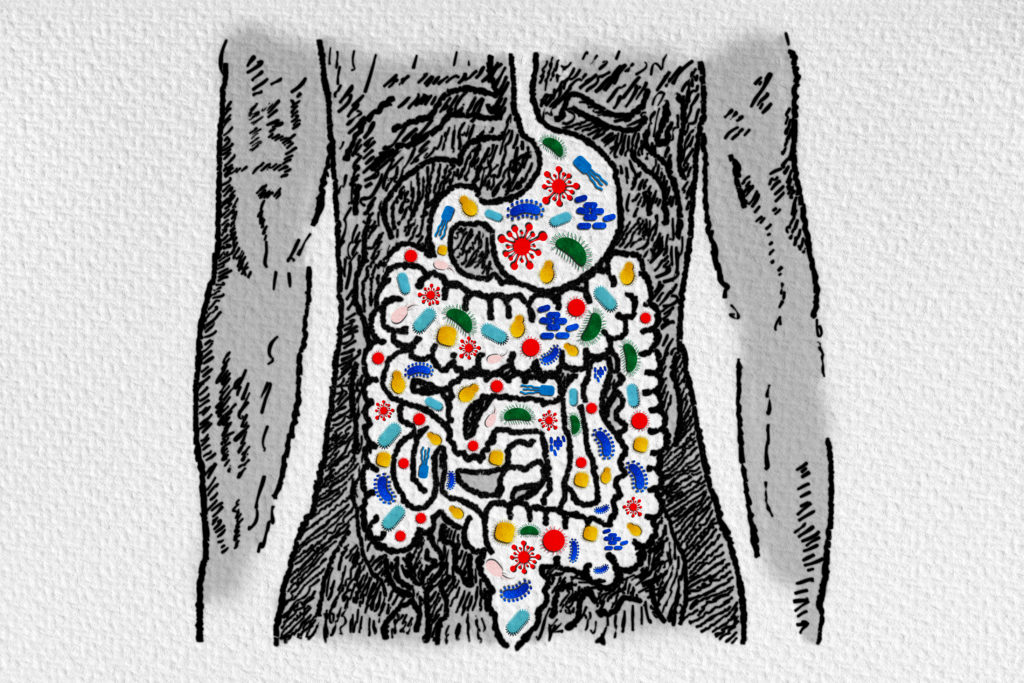Quick Hits
Daily brief research updates from the cognitive sciences

Who wouldn’t want to age better – well the results of an unsual study are in and the results are promising and may make many of you who are aging prick up your ears.
The results showed that by transferring gut microbiota from younger to older mice improved multiple signs of aging in the gut, the eyes, and the brain. So far so good but the method with which this is done may make you cringe. This transfer is done through faecal transplants, yes, that is transplanting poo, or matter from your gut!
Now though this may sound disgusting, this is also a known treatment in cases of gut disorders – with a lot of success. Indeed, I have reported on the multiple impacts of the microbiota, our collection of bacteria, on multiple disorders ranging from loneliness, to depression, to increased cognitive ability. It seems like our microbiota is an essential ingredient to remaining healthy and particularly also in aging well.
This particular experiment was focused on aging and also follows on from positive results from blood plasma transplants between young and old mice. Of note is also that the experimental protocol involved faecal transplants from young to older mice and measuring the impacts through different biological markers, and alternatively transferring faecal matter from old mice to young mice and also measuring the impacts.
As already mentioned, when transferring from young to old, the older mice saw improvements in multiple markers in the gut, eyes, and brain. In the reverse condition when the young mice received faecal matter from old mice their condition deteriorated showing the opposite effects with increased inflammation in the brain and depletion of a protein required for normal vision.
This opens up promising new avenues for aging well – and yes, there are already plenty of startups in this space – I am sure that will only increase.
I for one am watching this space closely.

Andy Habermacher
Andy is author of leading brains Review, Neuroleadership, and multiple other books. He has been intensively involved in writing and research into neuroleadership and is considered one of Europe’s leading experts. He is also a well-known public speaker speaking on the brain and human behaviour.
Andy is also a masters athlete (middle distance running) and competes regularly at international competitions (and holds a few national records in his age category).
Reference
Aimée Parker, Stefano Romano, Rebecca Ansorge, Asmaa Aboelnour, Gwenaelle Le Gall, George M. Savva, Matthew G. Pontifex, Andrea Telatin, David Baker, Emily Jones, David Vauzour, Steven Rudder, L. Ashley Blackshaw, Glen Jeffery, Simon R. Carding.
Fecal microbiota transfer between young and aged mice reverses hallmarks of the aging gut, eye, and brain.
Microbiome, 2022; 10 (1)
DOI: 10.1186/s40168-022-01243-w
More Quick Hits
Learning at double-speed?
Quick HitsDaily brief research updates from the cognitive sciences ouldn’t it be great if we could learn things double speed? Well, maybe we can. At least according to a study out of the University of California. During the pandemic many...
The “drunken monkey” hypothesis – proven
This had to be a story I covered – monkeys and alcohol sounds too good to pass up. But this is also linked to the “drunken monkey” hypothesis: that humans developed their love for alcohol in earlier primitive times accidentally, and then intentionally, eating fruit...
The Newly Discovered Bias That Makes Us Think We Are More Diverse Than We Are
A few weeks ago I reported on some newly discovered ways we are biased namely that we consider generic terms such as “people” as equivalent to “men” rather than men and women. This was specifically focused on gender bias but this latest piece recently published shows...
Self-awareness of autism leads to better quality of life
Autism has become a well-known diagnosis in recent years. Though some people seem to be against this sort of labelling, and the general increase in different label of mental conditions, a study out of the University of Portsmouth shows why this is actually a good...
Optimal sleep improves your brain, mental, and physical health - and it’s not as much as you think
I’ve reported multiple times on sleep and how it affects just about everything form cognitive performance, to brain plasticity, to physical performance, to mental health, and to metabolism. The question...
No change for a century – children’s backgrounds still predict the same educational outcomes
Educational opportunities have changed dramatically for children over the last century – schools have changed, and college and university admissions have grown. Or so we might think at least. But according to a study out of the University of York, that is not the...






